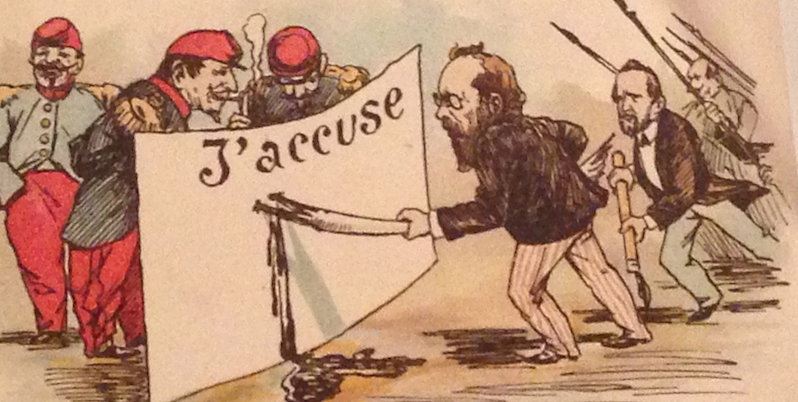Julian Barnes in Lit Hub:
 Merrie England, the Golden Age, la Belle Epoque: such shiny brand names are always coined retrospectively. No one in Paris ever said to one another, in 1895 or 1900, “We’re living in the Belle Epoque, better make the most of it.” The phrase describing that time of peace between the catastrophic French defeat of 1870–71 and the catastrophic French victory of 1914–18 didn’t come into the language until 1940–41, after another French defeat. It was the title of a radio program which morphed into a live musical-theater show: a feel-good coinage and a feel-good distraction which also played up to certain German preconceptions about oh-la-la, can-can France.
Merrie England, the Golden Age, la Belle Epoque: such shiny brand names are always coined retrospectively. No one in Paris ever said to one another, in 1895 or 1900, “We’re living in the Belle Epoque, better make the most of it.” The phrase describing that time of peace between the catastrophic French defeat of 1870–71 and the catastrophic French victory of 1914–18 didn’t come into the language until 1940–41, after another French defeat. It was the title of a radio program which morphed into a live musical-theater show: a feel-good coinage and a feel-good distraction which also played up to certain German preconceptions about oh-la-la, can-can France.
The Belle Epoque: locus classicus of peace and pleasure, glamor with more than a brush of decadence, a last flowering of the arts, and last flowering of a settled high society before, belatedly, this soft fantasy was blown away by the metallic, unfoolable 20th century, which ripped those elegant, witty Toulouse-Lautrec posters from the leprous wall and rank vespasienne. Well, it might have been like that for some, and Parisians more than most. But then as Douglas Johnson, wise historian of France, once wrote, “Paris is only the outskirts of France.”
At the time, however, the Beautiful Era was—and felt—an age of neurotic, even hysterical national anxiety, filled with political instability, crises and scandals.
More here.
